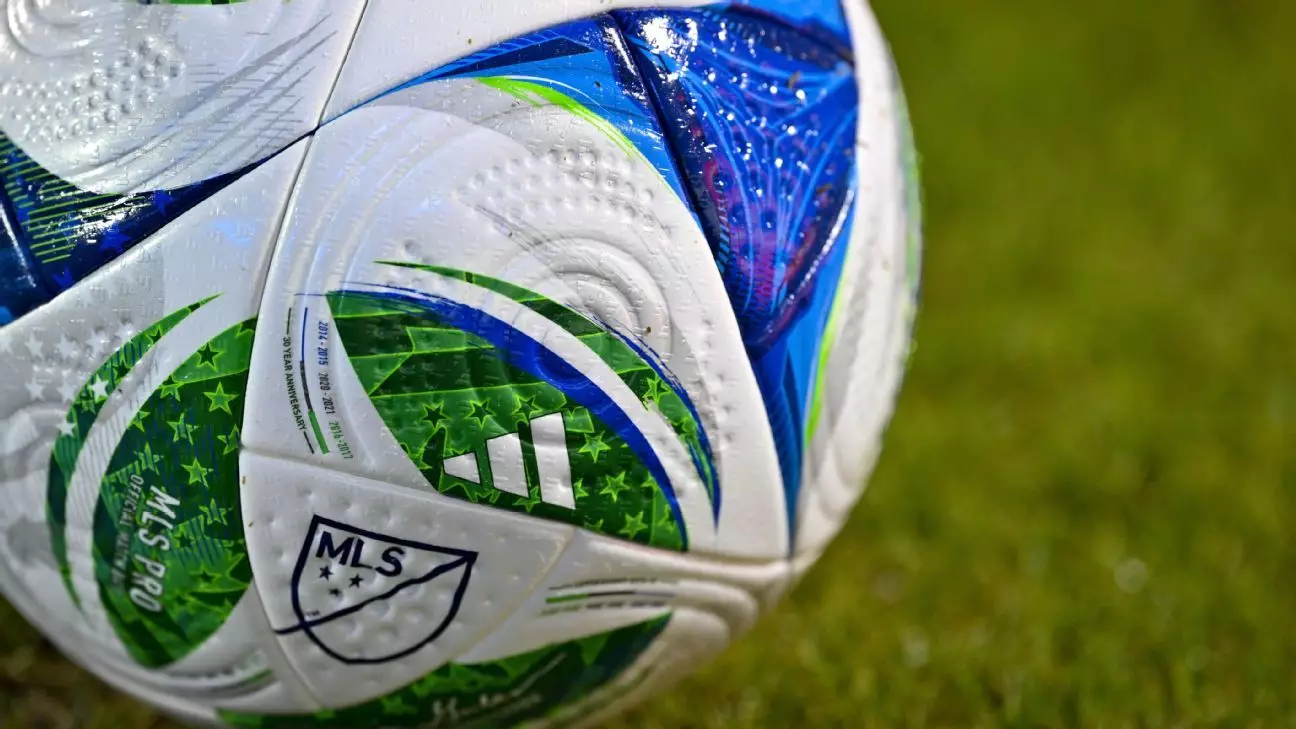The ongoing dialogue between Major League Soccer (MLS) and the MLS Players Association (MLSPA) over compensation structures for the prestigious Club World Cup prizes has surfaced significant underlying tensions. At the heart of this contention is the Seattle Sounders FC, whose players vocally protested at Lumen Field, calling attention to their grievances through provocative slogans such as “Club World Cash Grab” and “Fair Share Now.” These phrases encapsulate a widespread frustration among players regarding perceived inequities in compensation for their participation in high-stakes international tournaments. It is becoming increasingly evident that the players demand not just recognition, but a fair share reflective of their contribution to the league’s growing stature.
The Crux of the Compensation Debate
The root of the issue is tied to the existing Collective Bargaining Agreement (CBA), which stipulates that players are entitled to 50% of revenue derived from outside tournaments, albeit capped at $1 million. The MLS’s proposed revisions, however, have left players less than satisfied. The latest offer indicates the league is willing to distribute 20% of performance-related payments, along with the base $1 million for participation. With the stakes being high and the players’ roles pivotal to the league’s success, their demand for a more equitable distribution of funds is not just about money; it’s about dignity and respect.
The MLSPA’s assertion that the MLS’s proposals feel retaliatory is particularly concerning. This language is indicative of a larger narrative: that player commitment and exertion are not being honored or valued appropriately. The promise of $1 million, coupled with performance-based bonuses, pales when set against the $28.65 million windfall MLS stands to gain from FIFA. The disparity between what the league generates and what players receive raises red flags about the league’s commitment to the athletes who fuel its momentum.
Players’ Voices and Solidarity in the Face of Adversity
Amid these negotiations, one theme stands out prominently: unity. The players are not merely complaining about financial allocations; they are asserting their right to be active participants in the conversation about their worth and the economic outcomes of their labor. Their resolve becomes even more pronounced in the context of impending international competition, where the focus should rightfully be on preparation, not on contentious negotiations that distract from their performance.
The collective response from the MLSPA speaks to a broader labor movement, where players no longer accept the status quo without challenge. They are vocal in their commitment to demanding fairness—even in a structure that has historically marginalized player perspectives. The lack of agreement on new terms keeps players trapped under the existing CBA, which restricts their options for action—a situation that could lead to lingering discontent and unrest within the league.
The Impact of Financial Disparities on Player Morale
The ramifications of these disputes extend beyond the negotiation table. The palpable frustration within the players suggests that division could breed discontent among teammates. How can players concentrate fully on their game when faced with uncertainties about their compensation and value? This emotional and psychological toll cannot be overlooked; it creates an unfavorable atmosphere that could ultimately affect on-field performance.
As major franchises like LAFC, Inter Miami CF, and the Seattle Sounders prepare for the Club World Cup, the burden of these negotiations hangs heavily over them. Questions of fairness, respect, and recognition loom large, transforming events that should be celebrated into stressors that cloud players’ focus. This juxtaposition highlights a significant miscalculation by MLS; by not prioritizing player welfare, they risk undermining the very competitive spirit they cultivate.
A New Era of Athlete Empowerment?
While the situation remains unsettling, it also signals a significant shift in how athletes view their position within professional sports. As dependency on player performances for league success becomes more pronounced, so too does the recognition of their role as pivotal stakeholders in the financial ecosystem of the sport. The times are changing, and players are vocal in asserting that they deserve to share more equitably in the financial successes spun from their talents and hard work.
What remains to be seen is how MLS responds to these calls for change. Will they continue to sidestep the players’ valid grievances or engage in meaningful dialogue that acknowledges the significance of player contributions? The outcome of this negotiation will have lasting implications, not only for the current players but also for the future of the league as it continues to grow on the world stage. In a landscape where individual voices are gaining traction, the stakes couldn’t be higher for all involved.

